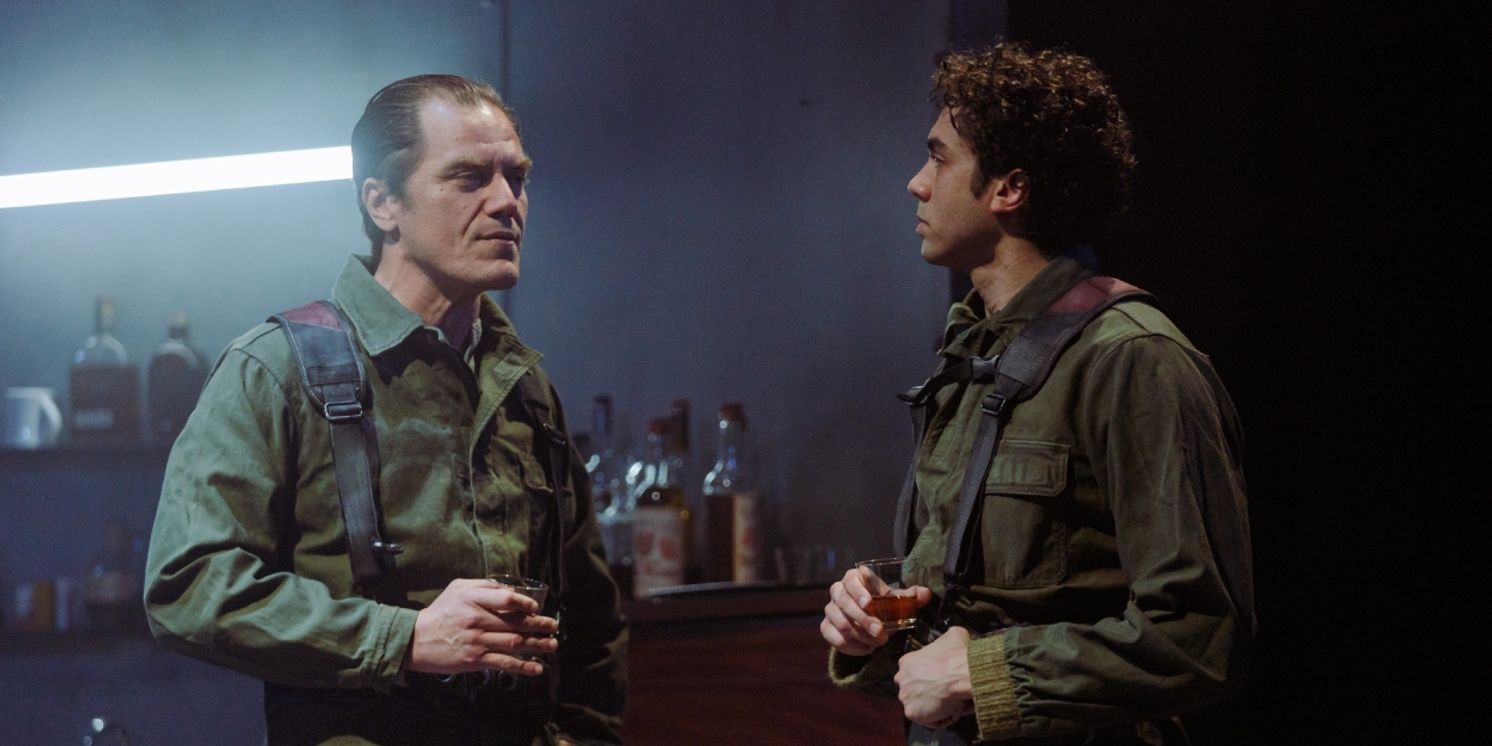Review: TURRET at A Red Orchid Theatre
World premiere of Levi Holloway’s dystopian play runs through June 22, 2024 at The Chopin Theatre

Levi Holloway’s dystopian play TURRET introduces audiences to an intimate bunker in a post-apocalyptic world. And notably, the play marks Michael Shannon’s return to A Red Orchid. Shannon plays Green, who presides over this mysterious bunker in which he’s holding captive his trainee, Rabbit (Travis A. Knight). At the play's opening, this particular iteration of Rabbit appears to be one of many test subjects within Green’s clutches. The first several scenes of TURRET have a kind of mundanity: Rabbit runs furiously on a treadmill while Green performs a series of tests. The text doesn’t reveal much about the nature of these experiments, and audiences are left to wonder what, exactly, is happening for much of the play.
As a result, TURRET has some pacing issues. I understand Holloway’s desire to world-build and then to subsequently build tension and mystery within that world, but I think the play takes too long to arrive at Green’s aims and the purpose of Rabbit’s existence. I spent most of the run time trying to figure out the mystery of the play’s world building, which I think left less time to contemplate the larger themes of survival and humanity that might be explored here. Then again, Holloway, who both wrote and directed, has captured a strange monotony of survival at the would-be end of the world; Green tries to find direction in each day, even as all the days look essentially the same to him. The same can’t be said for his fellow human Birdy (Lawrence Grimm), who seems left to wander the alien-inhabited wilderness — yet, oddly, can somehow still communicate with Green via a rudimentary computer chat system.
Ultimately, I find TURRET perplexing. Sure, it’s a slow-burning dystopian story, but I wish the play itself had given us a little more to chew on and that Holloway had revealed more answers sooner. I think then that would give more room for the underlying questions posed about the nature of human existence.
While some of the play’s aims are murky, the performances are crystal clear and fully realized. Shannon gives a razor sharp performance as Green; he has a strange affability. He makes Green an easy character to warm to; you want to grab a beer with him, even if you’re afraid that he might beat you up afterward. This is, of course, the kind of acting for which Shannon is notably famous: Green’s sinister and his control over Rabbit provokes unease and yet you’re also strangely rooting for him. Shannon also has a particular flare for portraying Green’s peccadillos, especially in one scene where he invites Rabbit to join him in a Sadie Hawkins dance as if recreating a 1950s homecoming.
Knight is a terrific scene partner for Shannon. While Green leads with cynicism, Rabbit leads with naivete. Knight plays Rabbit as a real blank slate, who approaches his role as Green’s subordinate with innocence and little pushback. Yet Knight also brilliantly plays Rabbit’s more primal undertones too; Rabbit might be naive, but he has killer instincts.
Though his on-stage appearance is brief, Grimm makes the mild-mannered Birdy compelling. Grimm delivers Birdy’s simple yet profound dialogue with a bizarre sense of calm and inevitability.
If you’re seeking a friend for the end of the world, it’s hard to say if Green, Rabbit, and Birdy are necessarily the friends you’d want. But Shannon, Knight, and Grimm deliver clear, compelling performances within the messy dystopian world of TURRET.
A Red Orchid Theatre’s world-premiere production of TURRET runs through June 22, 2024 at The Chopin Theatre, 1543 West Division. Tickets are $75.
Photo Credit: Fadeout Media and Jesus Santos
Reader Reviews

Videos


Agree with your review "somewhat perplexing,' to which I would add boring. True, we left after the first act, but I doubt if things would improve.
My approach is that "art" is means something you take with you, gives an insight, learn from, etc. and this play does not do that. The other highly positive reviews concentrate on praise for the acting (which was fine but wasted) and reviewers try to come up with themes to make the play meaningful-it is not.
Or a play can simply be an "entertainment,' e.g., The Mousetrap, The Play that Goes Wrong-Not true here either.